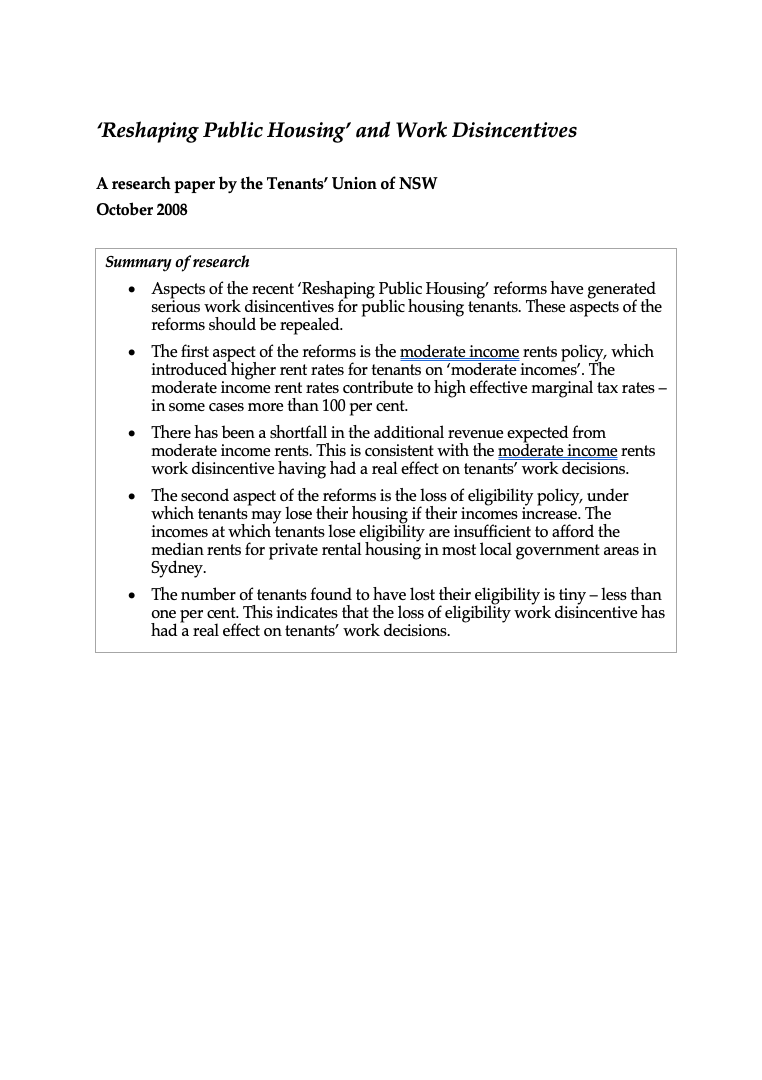‘Reshaping Public Housing’ and Work Disincentives
01/10/2008
Summary of research
- Aspects of the recent ‘Reshaping Public Housing’ reforms have generated serious work disincentives for public housing tenants. These aspects of the reforms should be repealed.
- The first aspect of the reforms is the moderate income rents policy, which introduced higher rent rates for tenants on ‘moderate incomes’. The moderate income rent rates contribute to high effective marginal tax rates – in some cases more than 100 per cent.
- There has been a shortfall in the additional revenue expected from moderate income rents. This is consistent with the moderate income rents work disincentive having had a real effect on tenants’ work decisions.
- The second aspect of the reforms is the loss of eligibility policy, under which tenants may lose their housing if their incomes increase. The incomes at which tenants lose eligibility are insufficient to afford the median rents for private rental housing in most local government areas in Sydney.
- The number of tenants found to have lost their eligibility is tiny – less than one per cent. This indicates that the loss of eligibility work disincentive has had a real effect on tenants’ work decisions


